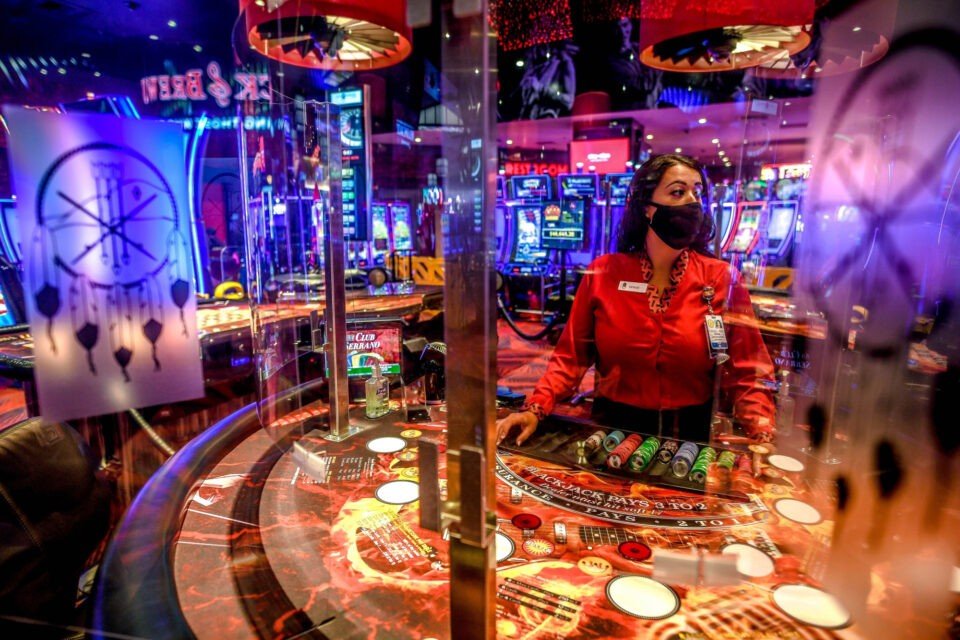Known to be one of the most vocal proponents of legalising casinos, Chutchawan Kong-u-dom, leader of Thai Local Power Party, is not just pushing for the relaxation of long-standing laws to get a casino-entertainment project off the ground.
He is also setting his sights on online gambling and the duty-free business.
With the House voting in favour of setting up an extraordinary committee to study the proposal, Mr Chutchawan has high hopes the long-awaited change will soon materialise.
“I believe it will be accepted because we will have regulations in place to keep young people away.
I want it to take shape in two years…with construction work completed. If not, we should at least enact a law to legalise casino gambling,” he said.
He said the public would support legal casinos in Thailand and a draft law has been prepared to support the plan which integrates a casino venue into a entertainment complex.
Mr Chutchawan also serves on the 60-member House committee studying the proposal, headed by Deputy Transport Minister Atirat Ratanasate.
The panel has appointed five sub-committees to explore related areas including legal issues, investment structure and the format of the complex, as well as measures to prevent any negative impacts.
The MP said the panel has invited stakeholders including local officials and police to give their views. Several wanted only to focus on “what gaming should be allowed and what shouldn’t”, which is not the point of the proposal, he said.
He said the idea of legalising casinos is to draw the money into the country and to make money from casino, the country will have to ensure that gambling services meet international standards and are fair.
He said the committee’s report should be comprehensive enough to support a draft law with the government on board as the issue has been examined by lawmakers.
“I think the House committee is trying its best to collect input. Eventually a new law will have to be enacted to regulate casino operations and make it right,” he said.
Mr Chutchawan said the rationale behind legalising casinos is economic and the country has been missing out on related income for decades.
Recounting the days when he still gambled only reinforced estimates that Thailand was missing out on the 70-80 billion baht each year that punters likely spend in foreign casinos.
He said it made him question whether that revenue should be kept in the domestic economy along with all the accompanying employment opportunities that go hand-in-hand with such an undertaking.
Mr Chutchawan, who once floated the idea of opening a casino in Thung Kula Ronghai in the lower part of the northeastern region, said he hopes that in the renewed proposal there will be three to four venues scattered across tourist hubs.
“Multi-billion-baht casino projects would create jobs, income and drive growth,” he said, adding that many who leave to seek work in other parts of the world might reconsider if there were more employment opportunities at home.
Mr Chutchawan has also set his sights on legalising online gambling which is expanding rapidly and proving difficult to regulate.
“Mobile phones give punters easy access to betting websites and the upshot is that money is flowing out [of the country],” he said.
“The principle is to stop such hefty sums leaving our domestic market, an amount that could be in the billions, or even trillions, of baht.
”Soccer betting is huge, and that revenue could be spent on education or assisting struggling farmers,” he said.
He said it is also time to open up the duty-free industry if the casino proposal gets the green light, noting that tourism would also increase, and preparations should begin early.
As for the ethical concerns that have always been cited as a reason for Thailand’s ban on gambling, he said that battle had been fought and lost as betting remains endemic.
Rather than trying to stem an overwhelming tide with nothing but a cup, Mr Chutchawan said wants the nation to follow the example set by countries which have profitably embraced and regulated gambling.




